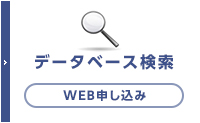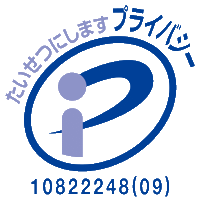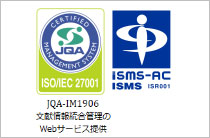ホームIMICライブラリMMWR抄訳2012年(Vol.61)戦闘配置についたアメリカ兵におけるエネルギー飲料の・・・
2012/11/09Vol. 61 / No. 44
MMWR61(44):895-898
Energy Drink Consumption and Its Association with Sleep Problems Among U.S. Service Members on a Combat Deployment - Afghanistan, 2010
戦闘配置についたアメリカ兵におけるエネルギー飲料の摂取とその睡眠障害との関連-アフガニスタン、2010年
アメリカの青少年や若年成人ではカフェイン含有量の多いエネルギー飲料の摂取が一般的になってきており、この年代の男性の約6%はエネルギー飲料を毎日飲んでいる。カフェインの過剰摂取は睡眠障害を誘発し、日中の眠気の原因となる可能性がある。アメリカ兵における軍事行動中のエネルギー飲料の摂取率およびその摂取と睡眠障害・眠気との関連を検討するため、Walter Reed Army Institute of ResearchはJoint Mental Health Advisory Team 7(J-MHAT 7)が収集した2010年のアフガニスタンにおけるOperation Enduring Freedom(不朽の自由作戦)に参加した兵士988人のデータを分析した。全兵士の44.8%はエネルギー飲料を毎日飲んでおり、13.9%は毎日3本以上飲んでいた。年齢や階級による摂取量の差はみられなかった。エネルギー飲料の1日3本以上摂取群(137人)は1~2本摂取群(306人)、無摂取群(545人)に比べて平均夜間睡眠時間が4時間以下の兵士の割合が有意に多かった(それぞれ38.2%、18.4%、23.9%)。また3本以上摂取群は、戦闘に関連したストレス・個人の生活に関連したストレス・疾患により夜間睡眠が中断(過去30日間のうち15日以上)した経験のある兵士の割合が1~2本摂取群および無摂取群に比べて有意に高く、座って指示を受けている間や警備任務中の居眠りの頻度も高かった。兵士には、エネルギー飲料の過剰摂取が睡眠や任務遂行に悪影響を及ぼす可能性があることを教育する必要がある。また戦闘環境ではエネルギー飲料の摂取を控えることを奨励するべきである。
References
- Reissig CJ, Strain EC, Griffiths RR. Caffeinated energy drinks-a growing problem. Drug and Alcohol Depend 2009;99:1-10.
- CDC. Beverage consumption among high school students-United States, 2010. MMWR 2011;60:778-80.
- Schmidt RM, McIntire LK, Caldwell JA, Hallman C. Prevalence of energy drink and supplement usage in a sample of Air Force personnel: interim report. Wright-Patterson Air Force Base, OH: Air Force Research Laboratory; 2008. Available at <http://www.dtic.mil/cgi-bin/ GetTRDoc?AD=ADA514723>. Accessed November 5, 2012.
- Lieberman HR, Tharion WJ, Shukitt-Hale B, Speckman KL, Tulley R. Effects of caffeine, sleep loss, and stress on cognitive performance and mood during US Navy SEAL training. Psychopharmacology 2002; 164:250-61.
- Malinauskas BM, Aeby VG, Overton RF, Carpenter-Aeby T, Barber- Heidal K. A survey of energy drink consumption patterns among college students. Nutr J 2007;6:35-41.
- Roehrs T, Roth T. Caffeine: sleep and daytime sleepiness. Sleep Med Rev 2008;12:153-62.
- Belenky G, Wesensten NJ, Thorne DR, et al. Patterns of performance impairment and restoration during sleep restriction and subsequent recovery: a sleep dose-response study. J Sleep Res 2003;12:1-12.
- Omvik S, Pallesen S, Bjorvatn B, Thayer J, Nordhus IH. Night-time thoughts in high and low worriers: reaction to caffeine-induced sleeplessness. Behav Res Ther 2007;45:715-27.
- Adler AB, Britt TW, Castro CA, McGurk D, Bliese PD. Effect of transition home from combat on risk-taking and health-related behaviors. J Trauma Stress 2011;24:381-9.
- US Department of Agriculture. What we eat in america, NHANES 2007-2008. Table 1: nutrient intakes from food: mean amounts consumed per individual, by gender and age. Washington, DC: US Department of Agriculture, Agricultural Research Service; 2010. Available at <http://www.ars.usda.gov/ba/bhnrc/fsrg>. Accessed November 2, 2012.
Copyright © 2013 International Medical Information Center. All Rights Reserved.












